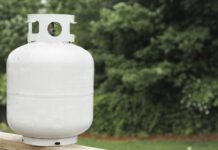Let’s face it; the plumbing system is a critical conduit for water throughout the home or commercial property. Can you live in a home without a functioning plumbing system? I wouldn’t. Installing a plumbing system isn’t just about adhering to building code requirements in your area. It’s a fundamental part of every structure. In that regard, understanding the inner workings of your home’s plumbing system can help you figure out when the system is out of kilter. In doing so, you can schedule periodic maintenance or repairs if need be.
Still, professionals offering plumbing services can have an easier time repairing your system if you are actively involved. For instance, you can help them locate hidden pipework or help them figure out the layout of your plumbing system.
Now, what are the various types of plumbing systems? Let’s break down the main types.
Water Supply System
What do you use water for in your home? I presume that cleaning, cooking, drinking, among other uses, come to mind. In short, water makes it easier to keep the home humming.
A reliable water supply system is an invaluable addition to a home. It ensures adequate pressure for a sufficient water supply. But what happens if your water supply system is out of whack? Let’s suppose that some of your faucets or pipes start to leak. Imagine what that could do to your monthly utility bill in due course.
You may have to call in a professional plumbing contractor if you experience an issue with your water supply system. Involving an expert is the best way to deal with matters relating to the piping and fixtures in your system.
Plus, the pipes supplying water to your home could develop tiny leaks. When that happens, you might end up dealing with lots of other issues. For instance, dampness resulting from leaks can create an ideal environment for mould growth. In turn, you and your family’s health would be at risk.
Oh, do you know that a damp environment creates a conducive breeding ground for critters such as roaches? Repairing leaks could keep such uninvited guests at bay.
More importantly, water leaks could affect the structural integrity of your home. Before a seemingly minor leak spirals out of control, consider contacting a professional to keep your water supply system in good working order.
Drainage and Venting System
The wastewater and contaminated water from your kitchen drain, toilet, laundry, or bathroom needs to be channelled out of the home. That’s where your drainage system comes in.
Over time, the home’s drainage pipes, trap, or pump may start showing signs of wear, such as leaks or breakages. Such pipes or fixtures may require replacement or an overhaul if the drainage system is overwhelmed.
Let’s not forget that frequent fixtures such as sinks can lead to a buildup of crud and grime in the piping over time. Eventually, pipes could block, leading to a costly repair. In addition, if the drainage system is neglected or hasn’t been adequately maintained, it could fall apart when you least expect it.
The home’s venting system is also responsible for diverting unpleasant gases from your den. Wastewater produces toxic gases that, if left to accumulate, can render your home uninhabitable. The drainage and venting system work hand in hand: the former directs water away and prevents the backflow of gases, while the latter keeps out irksome gases.
A blockage in the venting system could pose health and safety concerns. If you suspect a venting issue or a drainage anomaly threatens to wreak havoc in your home, call in a plumbing expert to address the issue. Such a professional is best equipped to figure out the exact problem you face and to provide a remedial action plan.
A plumbing professional can use specialised equipment such as a sewer camera to pinpoint the exact issue in your drainage system. In doing so, the expert can resolve the issue in time before it gets out of hand.
Stormwater System
Rainwater or snowfall should be channelled into the appropriate outlets. Let’s suppose stormwater from your roof or surrounding areas isn’t correctly managed. In that case, it can contaminate your water supply, erode your building’s foundation, or even cause flooding in your home.
Simply put, stormwater can cause unimaginable damage. Imagine the financial implications of having to start afresh if stormwater ruins your home along with your personal belongings.
Involve a professional to check out your stormwater system and assess potential risk factors. Doing so could avert disaster by keeping you a step ahead and allowing you to manage water runoff more efficiently. Your plumber can also design and fix a stormwater drainage system in your home to discharge rainwater.
In short, the various plumbing systems we’ve examined play an essential role by ensuring that your home runs like clockwork. For that to happen, the individual systems need to work in concert. Consider involving a plumbing technician to keep each system in tip-top shape to avoid problems further down the road.










